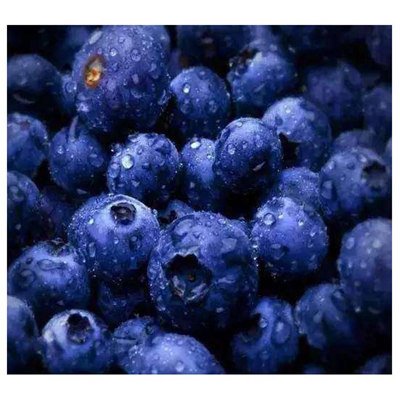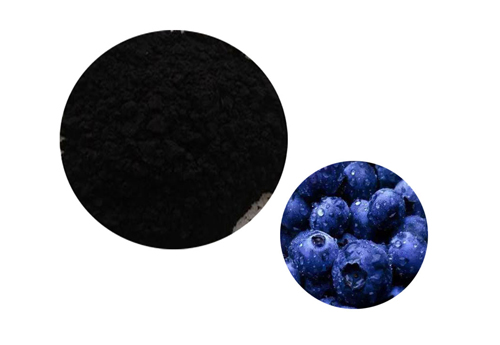Sep. 15, 2021
Blueberries are a North American favourite, and most people are sure they recognise them when they see them. But bilberries, their European relatives, look almost identical. Bilberries have similar nutritional value but are richer in anthocyanins - powerful, brightly coloured antioxidants - but both are healthy and delicious. Read on to learn more about the differences between these two berries! Bilberries and blueberries may look very similar, but there are some important differences that you may not be aware of. Next, the bilberry extract supplier will share it with you.
Most of us are familiar with the blueberry, which is widely grown in North America. The bilberry, on the other hand, is a wild species, native to the forests of northern Europe. The bilberry is also known in Europe as the wild blueberry. It is almost impossible to cultivate bilberries.
In Europe, bilberries are a popular snacking fruit. People usually collect the berries from the wild plant. Both blueberries and bilberries can be eaten fresh, frozen or dried. They can also be made into jams, juices, wines, pies and yoghurts.

Bilberry
Unlike blueberries, however, bilberries are almost impossible to cultivate and harvest. On the one hand, anyone who has tasted bilberries or wild blueberries will tell you that cultivated blueberries are nothing like it. Wild blueberries and bilberries have enough similarities: both have a stinky flavour, are only slightly sweet and have an intense flavour and colour that comes from their high anthocyanin content.
The anthocyanin plant pigments in wild blueberries and bilberries are so intense that they will cover your hands and mouth in a blue-red hue that won't wash off easily. But it is precisely this that gives them their characteristic flavour. On the other hand, cultivated blueberries are sweeter and are white inside. They do not stain your skin, but their flavour is much lighter.
We all know that blueberries are a good source of antioxidants. Well, bilberry has four times higher levels of antioxidants than blueberries. This is due to the fact that bilberries have higher levels of anthocyanins (cyanidin, delphinidin and peonidin), whereas blueberries are only rich in one subtype of anthocyanin - malvidin.
Bilberries are the richest source of anthocyanins, providing 300-700mg per 100g of berry.

Bilberry Extract
"Most attention has been focused on the antioxidant properties of anthocyanins in relation to the health benefits of bilberry, which may go beyond simple antioxidant effects and involve cell signalling pathways, gene expression, DNA repair and cell adhesion, as well as anti-tumour and anti-microbial effects."
Compared to blueberries, wild bilberries are more nutritious, with higher levels of vitamin C, vitamin E and manganese than blueberries.
In Singapore and South East Asia, we don't really have access to fresh or even frozen bilberries. The only way to consume bilberry is to take the bilberry extract. It is suitable for anyone who wants to provide antioxidant protection for the eyes, blood circulation and to support their overall immunity.
YouBio has focused on the extraction, separation, and refinement of natural products for over two decades. We set “Care for Life" as our goal and devoted ourselves to the cause of human health. By now we have developed and produced more than 100kinds of plant extracts as well as natural ingredients. Welcome to contact us today or visit our website to learn more about bilberry extract for sale.
Previous: What Is Black Ginger Extract Good for?
Navigation
Tel.: +86 29 8832 8887
Mob.: +86 137 5996 2312
Email: info@youbiolife.com
Add.: Room 1007, Block B, Huixin IBC, No. 1 Zhangbayi Road, Xi'an, Shaanxi Province
Request a Quote